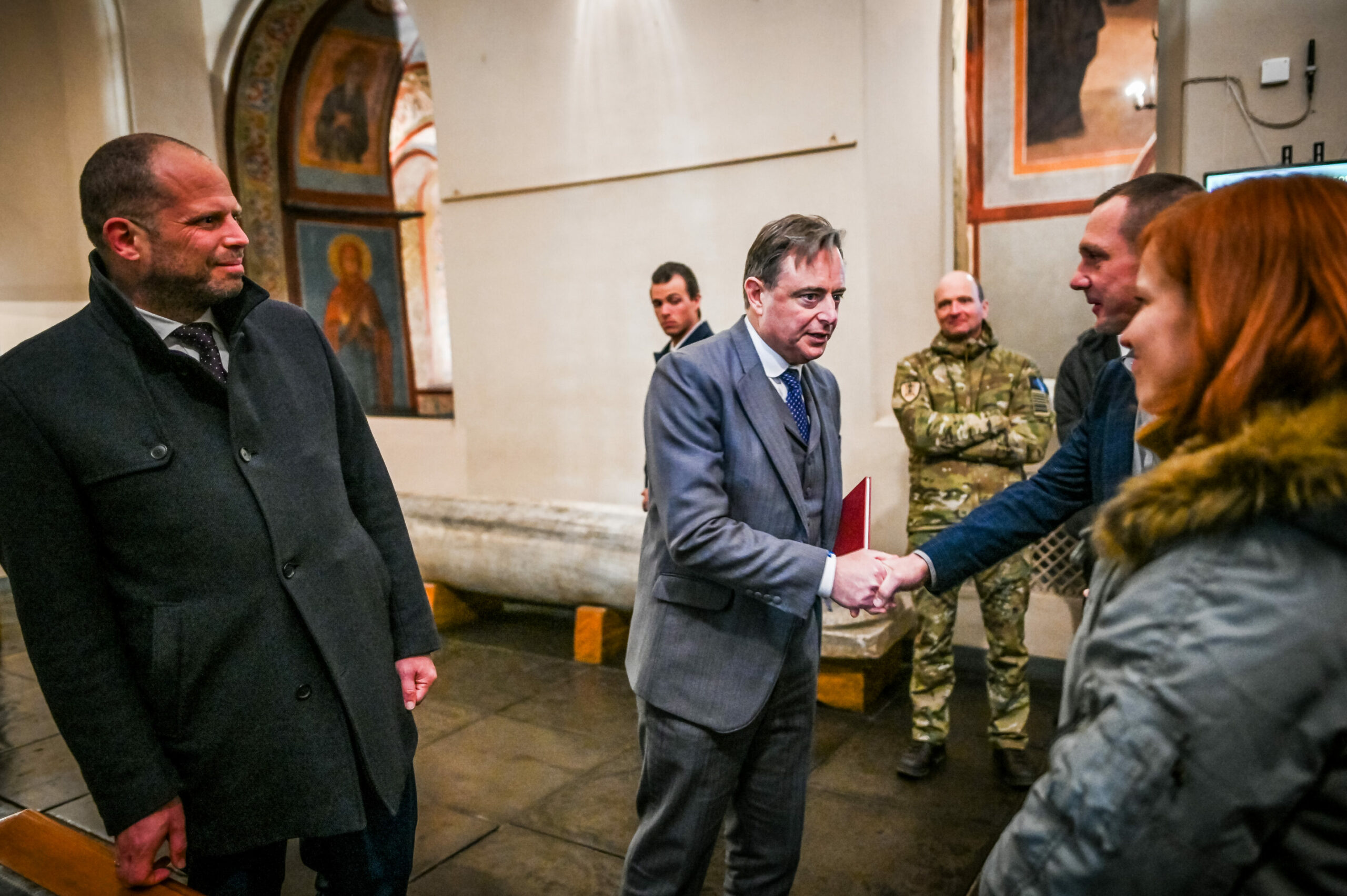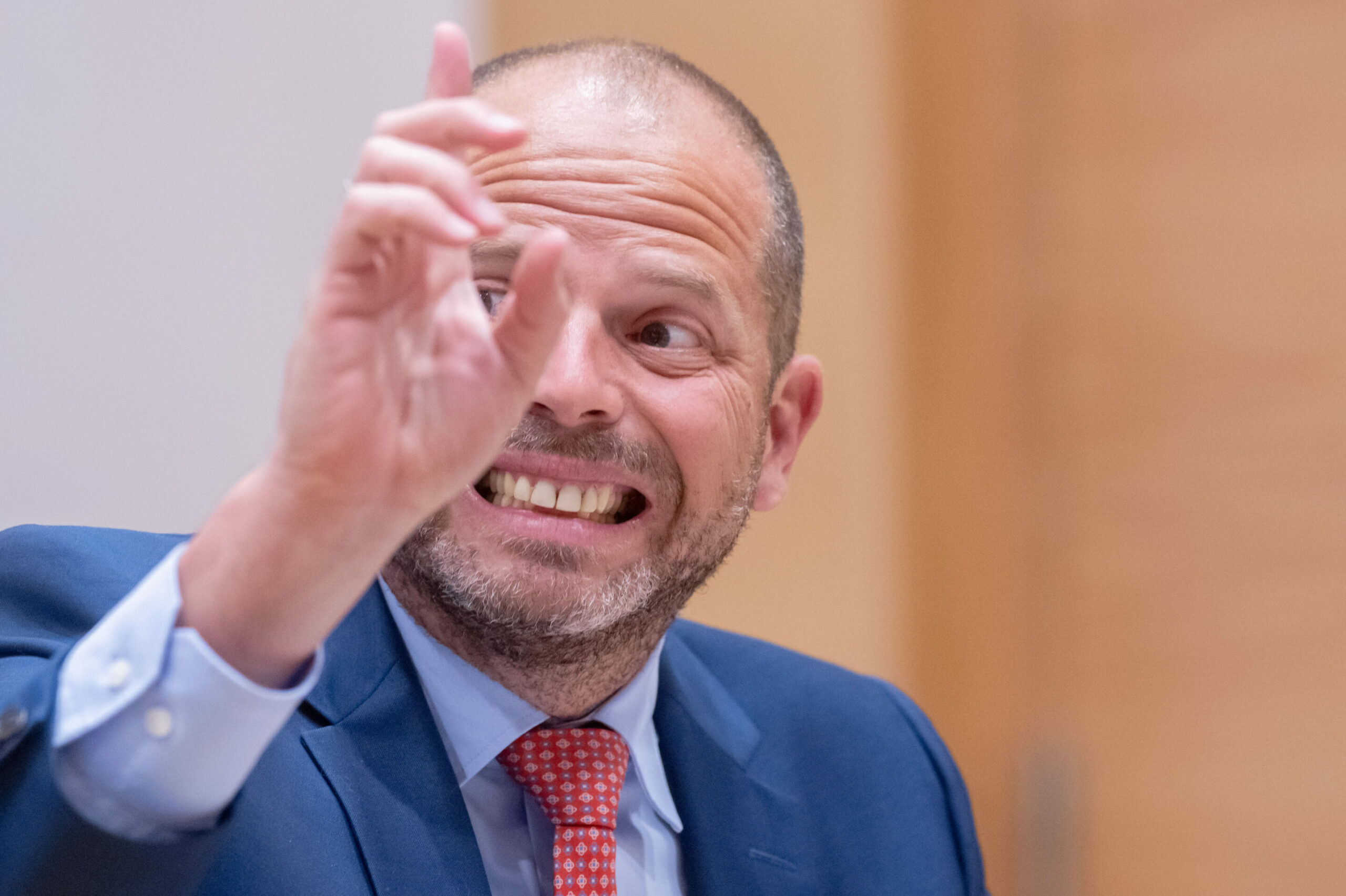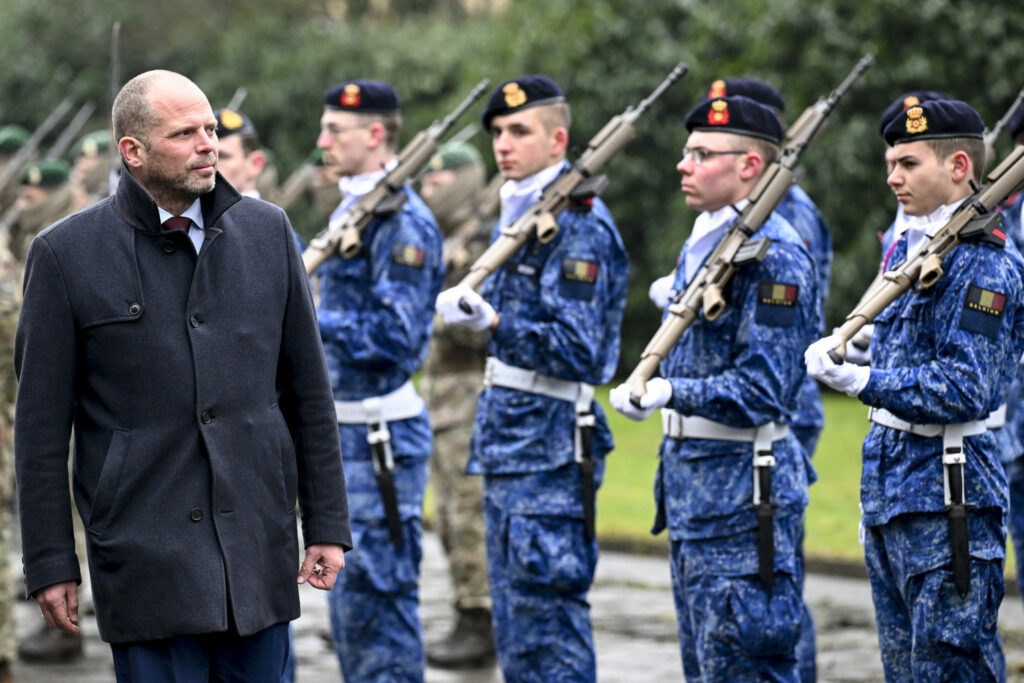Belgium's Defence Minister Theo Francken (N-VA) is not ruling out the possibility of Belgian soldiers being rapidly deployed as part of an international peacekeeping force in Ukraine.
"If an agreement were to be reached this week on Ukraine, then there would be immediate discussions about security guarantees. France and Germany will take the lead on this, with a rapid deployment of troops. Belgium will also most likely play a part," said Francken during the Defence Committee on Wednesday afternoon.
Discussions are underway in Europe on such a peacekeeping mission in Ukraine, he said. "We may hear less about it, but these discussions are continuing very actively behind the scenes."
'Safety net'
Nevertheless, Francken reiterated the conditions that should surround such a mission for him, such as logistical and intelligence support from the United States and NATO, as well as a "safety net" in case of problems. He wondered what would happen in the event of a clash with Russian soldiers, for example.
"Will war be declared on Russia, or what happens next? The exact role Belgium will play in a possible peacekeeping mission will depend on the final outcome, needs, and format of the operation and is currently the subject of further review and discussion," Francken said. "As I said, this will be done under French and British leadership, in collaboration with all the chiefs of staff of the countries concerned."
He added that, for security reasons, no further details could be given on this subject.

Defence Minister Theo Francken (Left) and Belgian Prime Minister Bart De Wever (Centre) during a diplomatic visit to Ukraine on 8 April 2025. Credit: Belga/Justin Yau
Francken visited Ukraine two weeks ago with Prime Minister Bart De Wever (N-VA) and Foreign Affairs Minister Maxime Prévot (Les Engagés). They were accompanied by some ten representatives from Belgian defence companies: Sabena Engineering, Thales Belgium, Patria Belgium Engine Centre, John Cockerill Defence, FN Browning, Sioen, OIP, Exail, ILIAS, and K&S Belgium.
Ukraine is keen to attract European manufacturers to produce weapons on its soil. However, Francken noted that this is complex as Ukraine is a country at war. Among other things, he raised the issue of insurance for the personnel who would be deployed there.
"So, who will insure these workers? Practically speaking, no one wants to do it. We are looking for a solution to this problem," he said. "Questions have been raised on whether these workers could be enlisted as reservists. But they cannot be sent as soldiers, because then we would be engaging in a war if something went wrong."
"Therefore, this issue must be carefully considered. These are small, practical questions that are not easy to resolve. Our country is not the only one facing these problems; other countries are too," Francken added.
Divided Europe
Additionally, he stressed that European military cooperation could be much better; Francken finds it "incomprehensible" that there are two separate research programmes on the fighter plane of the future: SCAF (by France, Germany and Spain) and Tempest (by the United Kingdom, Italy and Sweden), for example.
"The largest military research programme in Europe is very divided, very expensive and going very badly," he said. "I am looking forward to the military component in the new German coalition agreement. They are currently in the SCAF programme."
According to Francken, the programmes need to be merged to develop one future aircraft. "Are we really going to do two projects for 350 aircraft? This cannot continue."

Defence Minister Theo Francken (N-VA) during a session of the parliamentary commission for National Defence at the Federal Parliament in Brussels, Wednesday 23 April 2025. Credit: Belga/Jonas Roosens
In the next two weeks, he will present his policy note, in which he promises to "provide clarity" about the sources of financing for the promised new investments in Defence.
In the Federal 'Easter agreement', the Government agreed to increase investments to 2% of GDP this year. To achieve that percentage, some €17 billion will be needed during the legislative term. By July, a strategic vision will be drawn up that must determine exactly what that money will be spent on.
In the meantime, which existing expenditure can be considered as defence expenditure is already being examined. Francken is thinking of, among other things, the pension costs of professional soldiers and the reinforcement of road infrastructure through the Regional Government.

